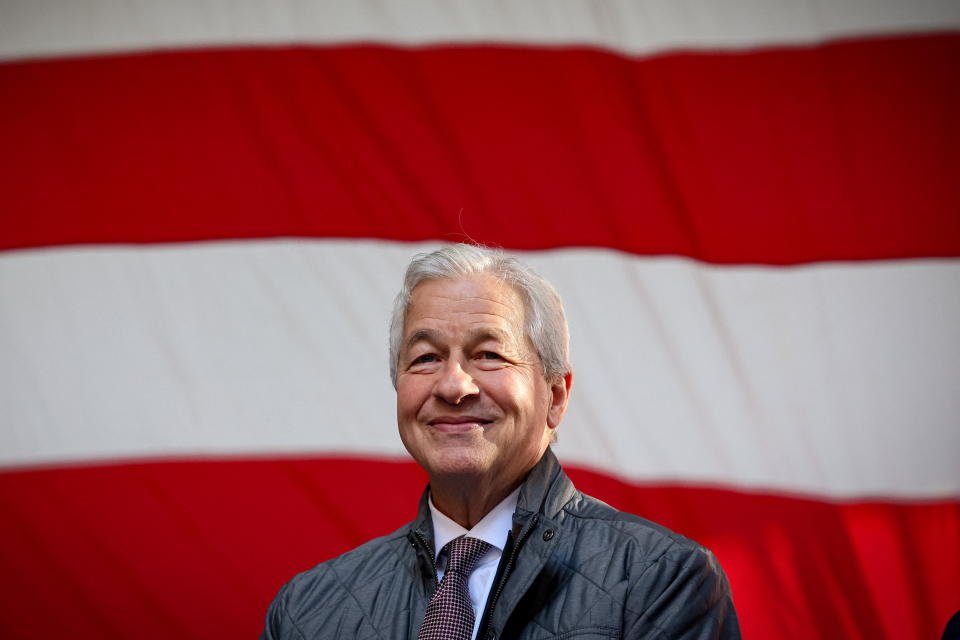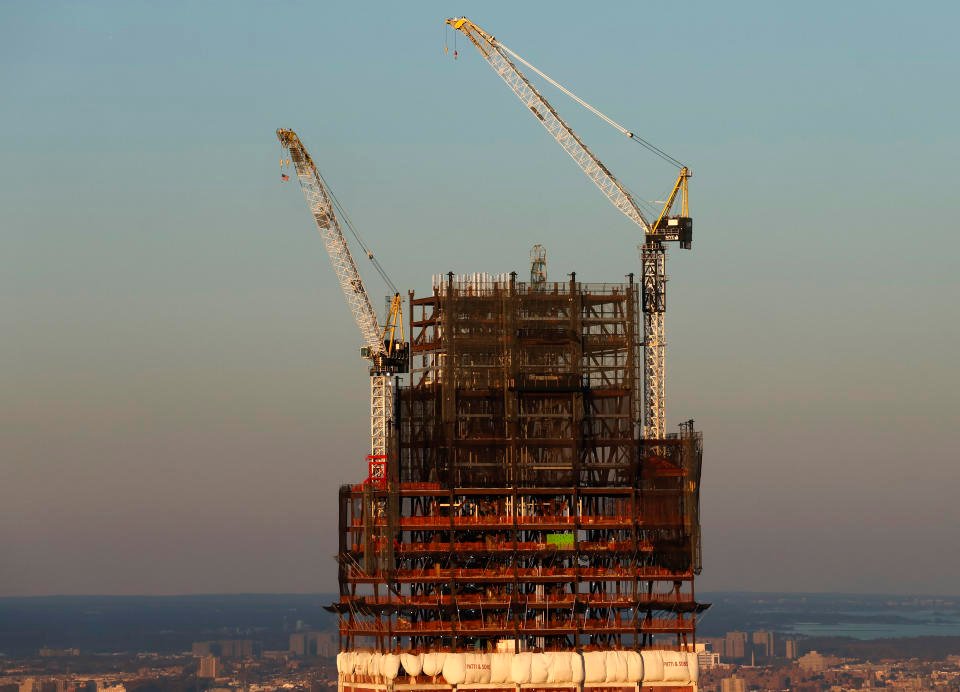Investors are gathering at JPMorgan’s (JPM) Manhattan campus Monday to hear from CEO Jamie Dimon and his executive team, and they will be listening for answers to some key questions.
Who might succeed Dimon, the longest-serving boss of a big US bank? Can JPMorgan possibly keep churning out record-breaking profits? How does it plan to deploy all of its excess capital? How exactly does it plan to incorporate AI across its operations?
By nearly any measure, JPMorgan is currently in a class of its own when compared with the rest of the industry.
It is the biggest bank in the country by assets, it outearned all of its rivals again in the first quarter, and its stock hit a new all-time high this past week.
The worries that some have as they attend JPMorgan’s annual investor day Monday are not about the present.
They have a lot more to do with the future.
Who fills Dimon’s shoes?
The biggest unknown for JPMorgan right now has to do with the plans of its 68-year-old CEO, the longest-serving big bank boss and one of the best-known figures in the financial world.
Dimon has repeatedly rebuffed expectations for retirement, but at last year’s investor day he did acknowledge that he knows he can’t do the job forever.
“Succession is an issue, no matter what,” said Mike Mayo, a bank analyst for Wells Fargo.
Mayo pressed Dimon at last year’s investor day about how many years he expected to remain CEO.
“Three and a half,” Dimon said before laughing. He added that “we have the same plan we had before” without clarifying if there was any truth in the number he mentioned.
He has an incentive to stay until at least 2026 via a special retention bonus of 1.5 million options the board awarded him three years ago and is required to remain in charge that long to exercise the options.


The retention plan does have one interesting provision that allows Dimon to exit earlier. He can exercise the options if he leaves for a government job, according to a regulatory filing — elected or unelected.
Investors on Monday will hear from many of the executives considered front-runners for Dimon’s job.
One of the clear front-runners is Jennifer Piepszak, who this year became co-CEO of a new division encompassing JPMorgan’s commercial and investment bank along with Troy Rohrbaugh, previously co-head of markets and securities services.
Another is Marianne Lake, who oversees JPMorgan’s sprawling consumer unit.
JPMorgan’s president and COO Daniel Pinto is widely considered the person who would step in if Dimon had to leave suddenly and a new leader had to be named immediately.
Analysts agree JPMorgan has a deep bench of executive talent, but the transition will be a challenge no matter who takes over.
“When the announcement does come, the stock is going to go down because there’s a lot of people that own the stock because of him,” Gerard Cassidy, a bank analyst with RBC, told Yahoo Finance.
What will JPMorgan do with its excess capital?
JPMorgan prides itself on being prepared for any unexpected shocks.
One measure of that preparedness is capital, a buffer that protects the lender against future losses. The lender currently has more of that capital on a relative basis than it has ever had in its history.
“Our capital cup runneth over,” Dimon told analysts during an April earnings call.
To its regulators, that’s a good thing. But having too much can be a bad thing, as far as investors are concerned.
That’s because it may mean the company is in danger of not performing as efficiently as it should, dragging down certain measures that investors care a lot about. One such measure is return on tangible common equity, or ROTCE.
JPMorgan’s first quarter ROTCE far outpaced rivals as well as its own target. But the concern is what will happen to that metric in the future as regulators ask JPMorgan and other big banks to boost their capital levels even higher.
“How long does JPM want to sit on excess capital?” asked Morgan Stanley analyst Betsy Graseck.


There are ways for JPMorgan to deploy its extra capital. It can make new investments, such as buying another bank. It can also boost its dividends or stock buybacks, returning more money to its shareholders.
But it will be difficult politically for JPMorgan, the most dominant bank in the US, to get away with more acquisitions like its 2023 pickup of the failed First Republic from regulators.
More dividends and stock buybacks are also no sure thing. Dimon poured some cold water on the notion of increasing JPMorgan’s stock buybacks in April, saying “personally” he didn’t want to buy JPMorgan’s stock at its April 12 price ($195.43). It is now above $200.
“Excess capital is not wasted capital, it’s earnings in store,” Dimon said in April. “We will deploy it in a very good way for our shareholders in due course.”
The question about too much capital is “a nice problem to have, but it is a challenge,” said RBC’s Cassidy.
How will AI transform JPMorgan?
Dimon did not hold back in his annual shareholder letter last month when talking about the potential of artificial intelligence.
He likened it to “the printing press, the steam engine, electricity, computing and the Internet,” predicting the consequences will be “possibly as transformational as some of the major technological inventions of the past several hundred years.”
So how will it change JPMorgan?
Dimon has offered some specifics on this subject, citing more than 2,000 AI and machine learning experts and data scientists currently working for the bank and a new position called chief data and analytics officer that sits on the operating committee.
But some of the work remains a mystery. JPMorgan, he said, now has more than “400 use cases in production in areas such as marketing, fraud and risk” and he sees AI helping the bank “reimagine entire business workflows” and “augment virtually every job.”
Investors will be listening for more specifics, both in terms of JPMorgan’s investments and the potential savings over time.
Last year, JPMorgan budgeted $15.3 billion for technology, its highest ever and the largest such annual spend among US banks. Analysts expect the budget to be bigger in 2024.
“I think JPMorgan could wind up being the Nvdia of banking,” Mayo said in March, referring to the chipmaker that has benefited greatly from the AI explosion.
“They have the resources, the spending, the data, the process, and the people in place … They start from a position of strength more than any other bank.”
David Hollerith is a senior reporter for Yahoo Finance covering banking, crypto, and other areas in finance.
Click here for in-depth analysis of the latest stock market news and events moving stock prices.
Read the latest financial and business news from Yahoo Finance

